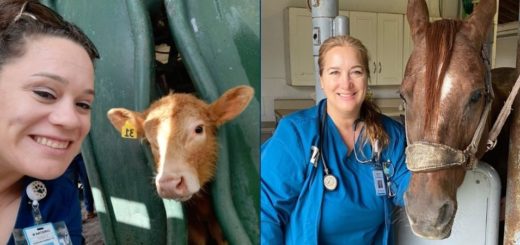Freshman Freedom: The Do’s and Dont’s of Your New College Independence
Freedom at last! This thought runs through most high school graduates’ minds prior to their first semester on a college campus, myself included. As soon as I threw that graduation cap into the air, I felt a wave of relief, as I had finally broken away from the chains of high school. Little did I know that with freedom comes independence, and independence requires the highest level of personal responsibility, especially when you’re looking to pursue a full-time job or an advanced degree a few years down the road.
I quickly fell in love with college life. The amount of interesting people on campus, a schedule that didn’t require being in one building for eight hours a day and numerous ways to entertain myself (a rec center, clubs, etc.) were all intoxicating features of my new life. I wasn’t nostalgic for high school teachers nagging me about my cell phone in class, and I especially did not miss sneaking in and out of my house to avoid confrontation with Mom over my recreational activities. Whether you’re living at home, in a dorm or in an off-campus house or apartment, I think just about every freshman can agree that college is quite a turnaround – and it’s filled with many more opportunities than high school.
Moving out of my dorm room in May of my freshman year, I looked back at my first year and wondered how I had let myself slip so far down the GPA totem pole. From my first semester to my second semester of college, I witnessed my grades slide from a solid 3.4 to a ghastly 2.0. How had this happened? Deep down, I knew the answer. My second semester of college was an entirely different frontier for me compared to my first. As my classes became increasingly more difficult, my study habits became increasingly lazier. Acquaintances and roommates became best friends, and awkward hangouts filled with small talk became the kinds of college parties you see in movies. Before I knew it, nights spent reading textbooks or attending group library sessions turned into nights spent with the gang. Fruits and vegetables turned into pizza and burgers, afternoon workouts turned into Fortnite binges and Thursday night movies quickly transformed into long, raucous nights out (usually followed by a missed Friday morning class).
In high school, teachers didn’t hesitate to sit down with slacking students and identify the problems they were having. My freshman year taught me that this is not the case in college. If you need help, you must take the time out of your day to see your professor, and more importantly, you must put in the effort outside the classroom to genuinely learn the material. If you don’t, it’s not the professor’s concern; it’s strictly your concern. Looking back, I think I can count the number of times I visited a professor’s office hours on one hand. No professor ever told me that I needed to study the material harder – as if my grades didn’t already show my lack of attention and effort. Fortunately, I began to turn things around my sophomore year, as I realized that the path I was on, while no doubt fun, was never going to land me that dream job (or any worthwhile job for that matter). Although my transcripts are still feeling the repercussions of my subpar second semester, by following a few easy tips, I am doing better than ever with my grades, jobs, social life and most importantly, my overall health. If you’re basking a little too much in your newfound Freshman Freedom, consider a few of these tips that can help turn things around before it’s too late:
-
- Balance work and leisure: Whether you’re planning on going downtown with friends, binging a new Netflix show or taking that nap you’ve been looking forward to, it’s important to determine roughly how long you’re going to spend on leisure each day. Balancing this by studying for an equal amount of time is a sure-fire way to make sure you aren’t overindulging. If you study for three hours, there’s nothing wrong with hanging with friends for another three. Just make sure this works with your schedule. If there aren’t enough hours in the day, you may have to occasionally decrease your leisure time. Need a hand? Eastern Florida State College holds student workshops each term designed to improve common life skills, such as time management.
-
- Try to eat healthy and work out: The simplest way to maintain a healthy lifestyle is to increase physical activity in your daily life. I’m not talking about power lifting here, nor training for a marathon. Anywhere between 30 and 60 minutes of continuous exercise per day is enough to significantly increase your body’s circulation and heart rate. Working out improves how you see your own body and mind, and knowing you are disciplined enough to consistently go to the gym will make you more confident when it comes to tackling new activities and ideas. While everybody loves a good pizza, working a fruit or vegetable into your diet every day will make you more prone to other healthy diet decisions, such as increasing your body’s overall vitamin levels, or cutting down on fats and carbs. Did you know that each of EFSC’s four campuses has an easily accessible fitness center for those looking to take their physical health more seriously?
-
- Treat school like it’s your job: You don’t see lawyers skipping early morning trials because they’re too tired. You don’t see firefighters arriving at a burning house with hangovers. You don’t see doctors gossiping with their friends during complicated heart surgery. So why do students do these things? The tuition you pay each term is solely for your education, and by only going through the motions of attending class, doing homework and taking tests, you’re cheating yourself and throwing away your money. What helps me most in that situation is to view myself as a professional, and my classes/assignments as professional duties. If you struggle to take school seriously, try imagining yourself 10 years down the road. You’re on the path to your dream job. How do you expect you’ll have to act to get there? By putting yourself in your own (future) shoes, you’ll quickly realize that the vision you have of yourself in the workplace is probably different from how you’re currently acting in school. The truth is that your career starts with habits you learn in college. Employers will recognize those with positive work habits versus those with negative work habits. So cultivate those positive habits now, or your dream career could end before it even begins. Need some advice? Eastern Florida State College has a Career Planning and Development Center that caters to students interested in advancing their career development skills – and they can even teach you strategies to land a job!
Being independent is a wonderful feeling, but it comes with certain responsibilities that are very easy to take for granted. Don’t forget to have a little fun, but follow these simple tips to create balance and stay on track in the process. Not only will you avoid falling victim to your newfound freedom, but your future self will also thank you.







